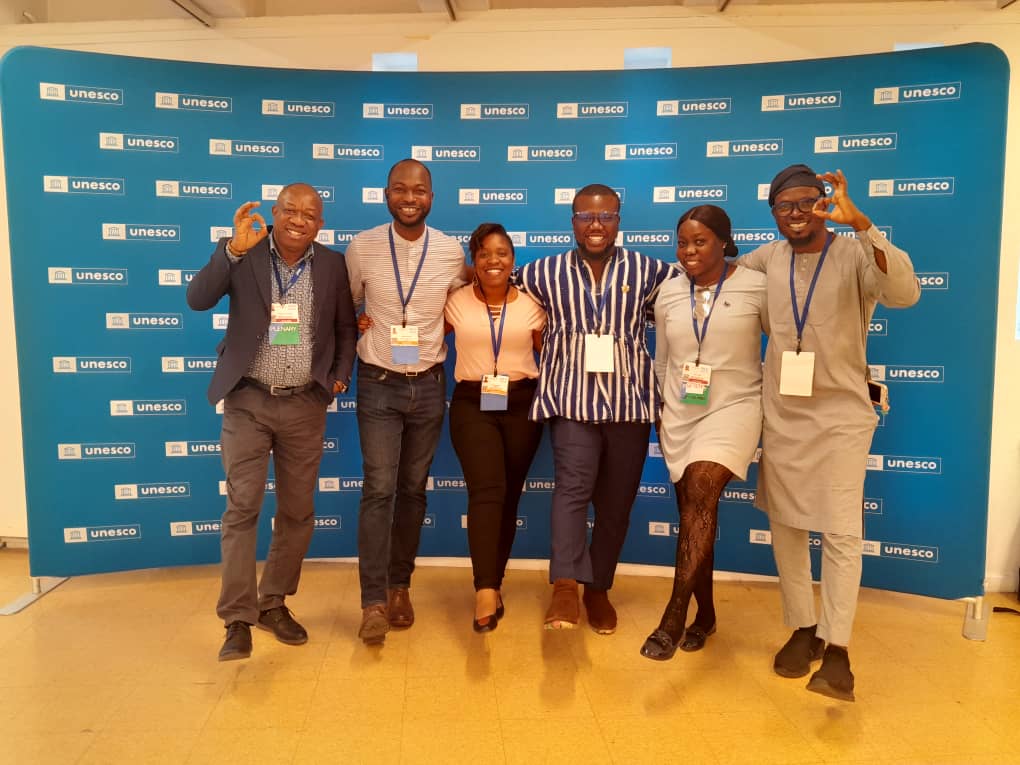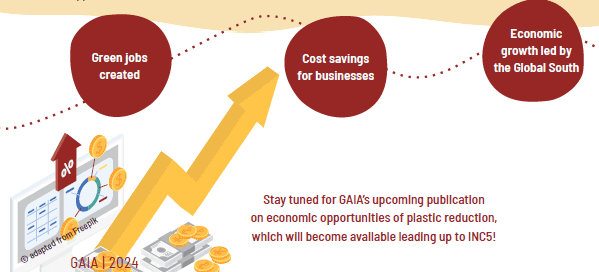An African Reflection INC2





By Merrisa Naidoo
Against the backdrop of one of the world’s most iconic towers, world leaders gathered in the French Capital from the 29th of May to the 2nd of June 2023 for the 2nd session of the Intergovernmental Negotiating Committee (INC2) to develop an international legally binding instrument on plastic pollution, including in the marine environment. With more than 1,700 participants in (UNESCO HQ) Paris – over 700 Member State delegates from 169 Member States and over 900 observers from NGOs, this demonstrated how high the stakes were for this 2nd convening on what will form the foundational objectives; core obligations, control measures and implementing elements for the global plastics treaty.
As I prepared for my heart to be captivated by the true beauty that Paris is, I kept playing back to the INC Secretariat’s words: “We have to make Paris count”, and we were off to an almost steady start as we heard from President Macron, commending the African continent, particularly Rwanda, Kenya & South Africa for their strides on plastic policies & laws, in his opening statement. It was also encouraging & refreshing to hear the Executive Director of the UN Environment Programme (UNEP), Inger Andersen, concluding her opening statement by emphasising that we cannot recycle our way out of the plastic crisis & that priority has to be given to upstream measures.
However, it did not take too long before geopolitics set in and rocked the boat. Suddenly, what seemed to be a glistening summer’s day in Paris with the lingering smell of freshly baked croissants & “amour” became confined to 2 days of long hours and intense stalling of negotiations by a small handful of large oil and plastic-producing countries. They raised procedural issues to delay discussions on the substantive matters of the treaty and gain veto power over the treaty text by advocating for consensus only, with no opportunity for voting if an agreement cannot be reached on decisions. Historically, previous conventions successfully adopted decisions based on voting–occurring when consensus could not be reached in the case of disagreements, such as in the Minamata Convention. Removing the voting provision will prevent us from achieving an ambitious Plastic Treaty and undoing hard-earned negotiated efforts. With the clock ticking, we fast found ourselves in informal negotiations that went on into the wee hours of the morning on Rule 38.1 (Consensus vs Voting), which has led to The draft Rules of Procedure (i.e. the rules that govern the negotiations) still not adopted and remain applicable provisionally as agreed at INC-1. Countries decided to make an interpretive statement on this rule which can come up again–for more time wasted–at INC-3.
Despite the delay tactics, as the African continent, we can be proud of how our member states, especially Senegal, remained true to their mandate for the INC2 and took a strong stance in denouncing the time-wasting and calling on countries to get their act together and focus on the task at hand. As honest-brokers in this process, the African Group has continued to speak with one voice and demonstrate leadership towards achieving an ambitious Global Plastics Treaty. In his opening statement, the chair of the African Group reaffirmed that Africa stands ready to partner with the rest of the world to engage in negotiations towards an implementable international legally binding instrument to end plastic pollution to address the larger triple planetary crises of climate change, biodiversity loss and pollution. The African position has also been strong in calling for measures that speak directly to reducing the trade, production and use of plastics, limiting the presence of toxic chemicals in plastics, prohibiting dangerous practices such as open burning, incineration, firing in coal-fired power plants and other waste-to-energy processes, co-processing in cement kilns, and chemical recycling, to protect human health and the environment and uphold principles of the Rio Declaration on Environment and Development, particularly the principle of equity, the polluter-pays-principle, precautionary approach and the principle of just transition.
Whilst we applaud the clear demonstration of leadership among the African Group, there is still a battle to be fought to ensure the rights, voices & equitable participation of fenceline communities, waste pickers, Indigenous peoples, youth, and other members of civil society who are most impacted by plastic pollution are recognised as rights holders in the negotiations. Two weeks before INC2, CSOs learnt their fate of not being guaranteed entry into the INC2 venue as we were restricted to one floating badge per organisation. Given the ever-growing interest in the process and the clear need for greater inclusion of under-represented constituencies, this was not acceptable, especially considering the amount of energy, time and travel that many of us had to bear to be a part of this process, only for the doors of UNESCO to be shut on us. It took a civil society staged action outside UNESCO, back & forth chats with governments and an open letter to the secretariat for UNEP to acknowledge the impacts of restricting & limiting access to CSOs.
GAIA and BFFP Africa Members in attendance at INC2 remained high-spirited amidst the access uncertainties championing the demands of African CSOs by Calling for African Leaders to Negotiate on a Strong Global Plastics Treaty. 15 Members from 9 African states (i.e. Tanzania, Ghana, Nigeria, Egypt, DRC, Kenya, Cameroon, Tunisia & South Africa) as well as two friends of GAIA & BFPP from Senegal, Kenya well represented the African CSO contingent at INC2. During INC2, African members made their voices heard in many ways apart from direct engagement with their INC Focal Points that included: 1) Participating in a Global South Press Briefing and Highlighting the Most Impacted Voices of Plastic Pollution; 2) Voicing the Concerns of CSOs at an EU Informal Meeting; 3) Radio Interviews about Plastic Pollution in Africa; and 4) Delivering a Statement on behalf of the Youth at the High Ambition Coalition Event.
It is also important to acknowledge member’s advocacy efforts even well before INC2 in the form of: An African CSO Meeting in Nairobi; Nigerian members convening Multi-Stakeholder Preparatory Meetings & Ministerial Media Briefings & Delivering of the GAIA/BFFP Joint Member Statement at the African Group Preparatory Meeting. These efforts continue to contribute to the strong positions taken by our African Leaders to END PLASTIC POLLUTION!
Let the road to INC3 begin, where we will have a zero-draft treaty to now negotiate on! See you in Nairobi. We will be looking to our African Leaders to raise the stakes even higher on home soil.
ENDS.




























